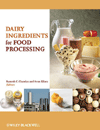Using different oils for preparation of breakfast foods
Using liquid oils can help for items such as pancakes and waffles.
.jpg?1720809280)
courtesy of Stratas
We were recently able to connect with Roger Daniels, VP research development innovation and quality, Stratas, and Vincent Barcelona, director of sales - national accounts and culinary, to chat about different types of oils used in the preparation of breakfast foods and snacks.
Liz Parker: What kind of oils or shortening can be required for breakfast food preparation? (pastries, breads, doughnuts, chicken & waffles, etc.)
Roger Daniels: Working with your shortening and oils supplier is crucial to ensure that your key ingredients meet the expectations of your customers. Here are some recommendations:
- For pancakes and waffles, these items are often prepped in a commissary kitchen and finished at the restaurant. Stratas Foods, LLC recommends using liquid oils like vegetable oil, high oleic soybean oil, and high oleic sunflower oil for this application. The oil in the batter provides lubricity, interrupting the protein-protein interactions from the flour and eggs to create a soft and crispy texture, characteristic of good pancakes and waffles.
- For pastries, such as sweet rolls or Danish pastries, a highly functional shortening is essential. We suggest using baking margarines, roll-in shortenings, or puff pastry shortenings. These shortenings impart a butter flavor, help in the mechanical separation of dough layers, and provide the necessary steam from the water phase in margarine to create the flaky layers desired in pastries.
- For doughnuts, whether cake or yeast-raised, they are best served fresh from the fryer or within a couple of days of preparation. Stratas Foods recommends a frying shortening designed for a long pot life, uniform heat transfer, and minimal oil migration post-frying. This ensures that glazed and sugar-coated doughnuts are uniform and not wet in appearance. Vegetable oil-based shortening, particularly those made from high oleic soybean oil, fits well with various fryer types and processes.
LP: What kind of oils or menu items does Stratas experiment with in its test kitchens, when it comes to breakfast?
RD: Stratas Foods’ Research, Development, and Innovation Center (RDIC) in Memphis, TN, is equipped with state-of-the-art baking and frying applications laboratories. We collaborate with customers to refine recipes for sweet rolls, doughnuts, and other breakfast items. This includes experimenting with bakery products as components for new combinations and improving holding times for classic products.
At the RDIC, customers work with food scientists, engineers, technical service, regulatory, and quality assurance professionals to tackle technical challenges and explore new possibilities. Recent projects focus on evaluating new oils and blend combinations for bakery and fried food items. Stratas Foods is committed to ensuring their shortening, margarine, and oil products meet the high standards desired by their customers.
LP: How does it choose what oils/menu items to experiment with?
RD: We select oils and menu items for experimentation by monitoring trends and partnering with suppliers to target specific applications. This approach helps develop an application catalog, facilitating discussions with customers about potential innovations from idea to commercial reality.
LP: What are some trends that Stratas is seeing in the breakfast category this year, in terms of oils/shortening usages and in terms of new or popular food items?
Vincent Barcelona: Stratas Foods is focusing on several trends in the breakfast category:
Health-conscious choices:
- Increased demand for oils with health benefits, such as olive oil, which are rich in healthy fats and antioxidants.
- Growing preference for non-hydrogenated shortenings and trans-fat-free options, aligning with consumer demand for healthier ingredients.
Sustainability:
- Emphasis on sustainably sourced oils, such as palm oil from certified sustainable sources.
- Interest in regenerative agriculture practices and oils that support environmentally friendly farming.
Functional oils:
- Use of oils with added benefits, such as high-oleic oils that provide stability and extended shelf life for baked goods and fried items.
- Oils fortified with vitamins or other nutrients to appeal to health-conscious consumers.
Any predictions for the rest of this year, or early 2025 on any of these topics?
RD: End users of shortening, margarines, and oils will continue to seek partners who provide reliable ingredient support. Key considerations include:
Ensuring the ingredient works consistently in the customer’s facility. Maximizing the finished product’s shelf life through the customer’s distribution network. Enhancing the product’s appeal on the shelf. Balancing indulgence and nutrition while maintaining the desired organoleptic properties of the finished product on the customer’s plate.
Looking for a reprint of this article?
From high-res PDFs to custom plaques, order your copy today!









